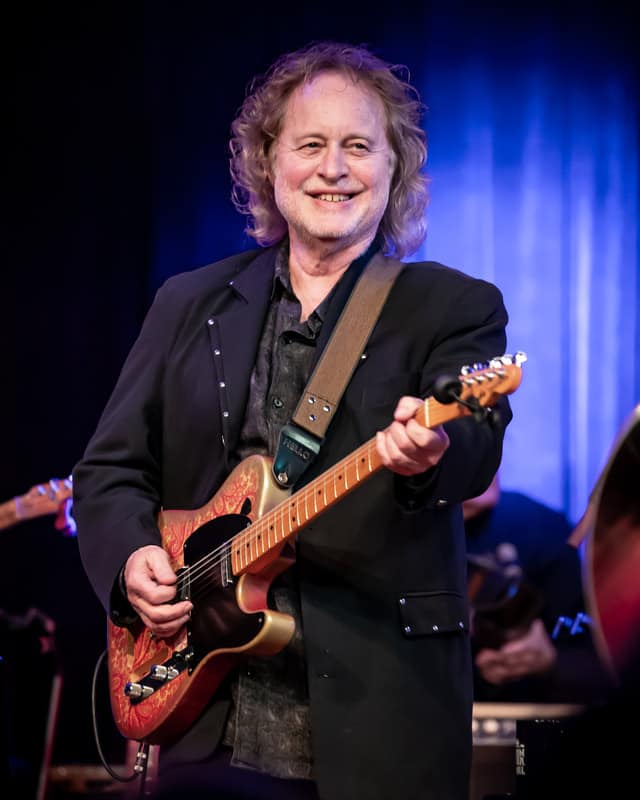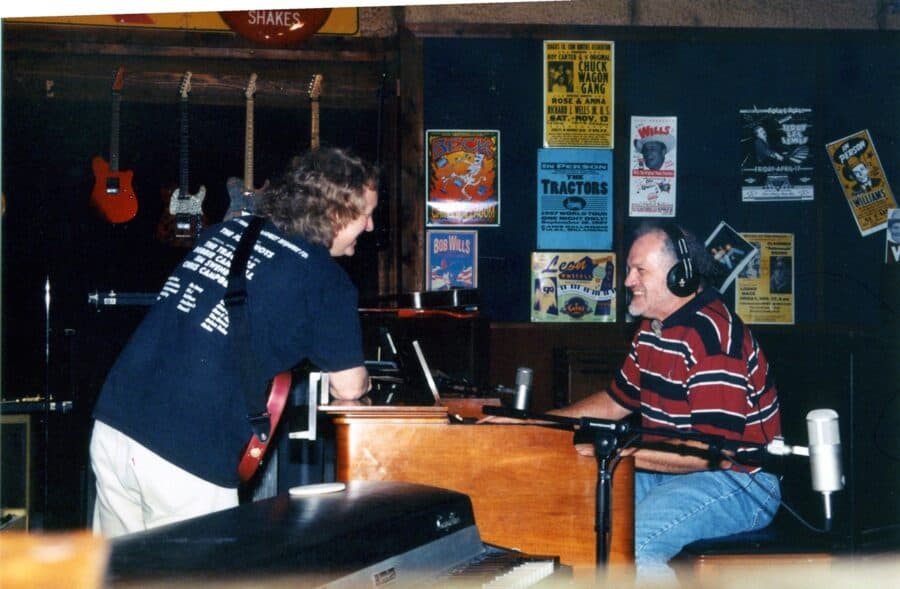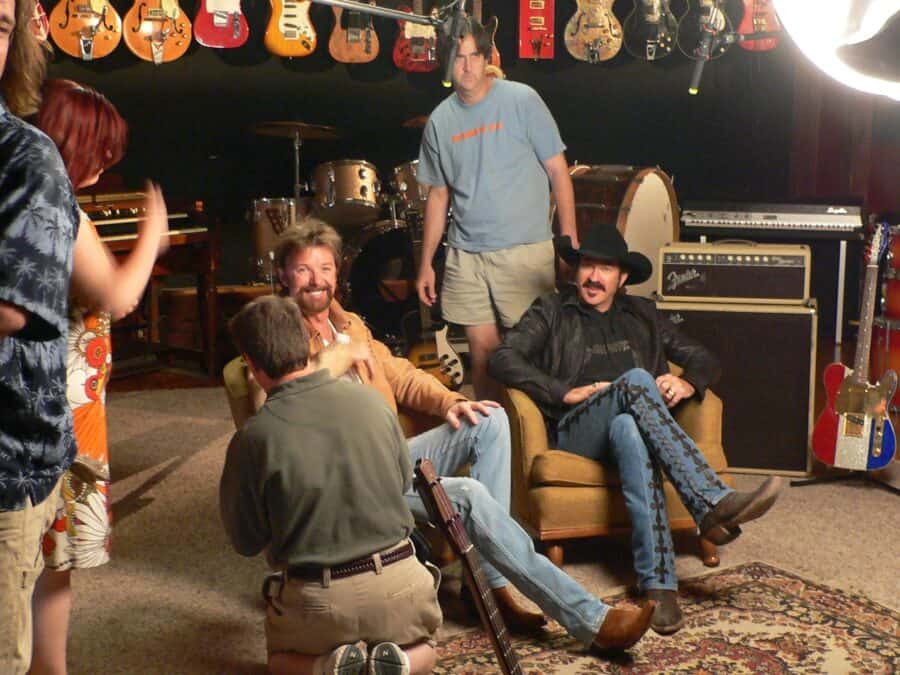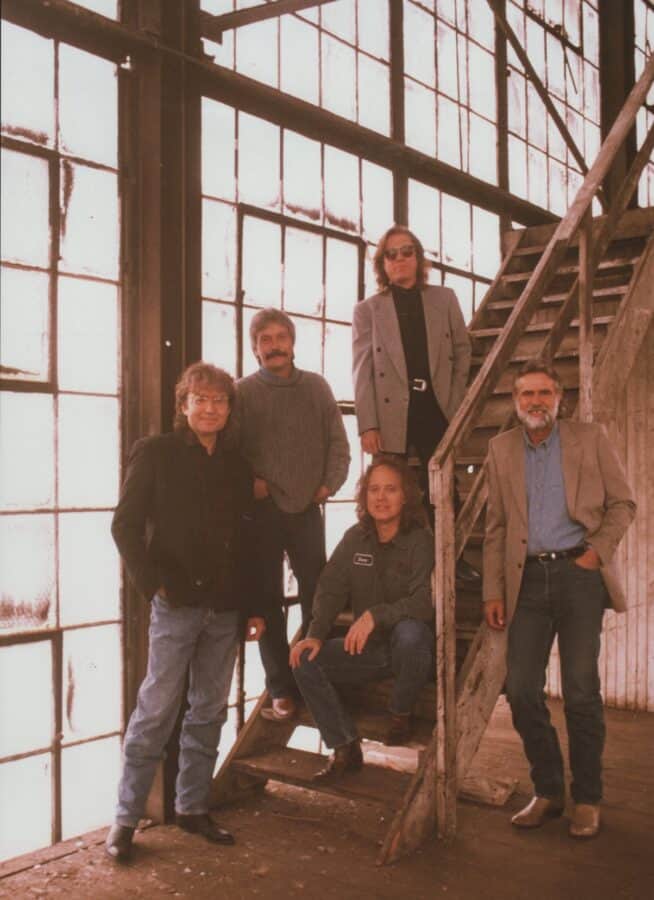Steve Ripley – Producer at The Church Studio and Leader of The Tractors Part 2

Part 2: Steve Ripley – Music Producer at The Church Studio and Leader of The Tractors
Steve Ripley left Oklahoma to pursue his musical dreams in Nashville and Los Angeles before returning to Tulsa. Numerous well-known performers in the rock, country, and Americana music genres considered him a friend and confidant. For his work at The Church Studio and his future band, he collected a huge network of brilliant friends and artists. In addition to his prowess as a musician and producer, Ripley was well-known in the business for his technological innovations in the areas of guitars, microphones, and sound design. To everyone he met, he was a kind, humble friend, and mentor with a big heart.
Ripley’s music and technical vision were magical, but he was also a self-starter and hard worker. He had advanced thinking and comprehension skills, as well as a strong sense of curiosity. Instead of simply going with the flow of life, he had a vision and was strategic about what he wanted to do next. He pursued his dream of forming his own band, The Tractors, on his own terms. And sometimes, that takes time.
The man who would become his partner at The Church Studio, Glen Mitchell, was in a 60s college band, the Rubber Band, at OSU with Gary Busey (the actor known for the Buddy Holly Story):
Gary was going back and forth to Tulsa on Saturday nights appearing as Teddy Jack Eddy on the Dr. Mazeppa Pompazoidi’s Uncanny Film Festival and Camp Meeting on KOTV. The show was created and hosted by Tulsa actor Gailard Sartain, who was part of an eclectic group of artists and musicians – including Tulsa Sound artists. Busey kept getting us work in California. In 1970, as Carp, we made an album with Epic Records. Gary played drums, John Crowder played bass, Ron Getman played guitar, and I played keyboards. We met Steve around 1974 when we all wound up back in Tulsa.
Mitchell eventually joined Ripley as an investor/partner of The Church Studio. His assistance was always appreciated by the Ripleys. Getman was also an original owner, but he soon decided he’d rather focus on music than business. Although Ripley and Mitchell bought The Church Studio in 1987 and owned the studio for nearly two decades, it was known among musicians as Ripley’s Studio. Ripley filled it with Steinway pianos (he once said, “They’re an American work of art; the great ones are made in America, not Germany”), Hammond organs, Wurlitzer electric pianos, Leslie speakers, vintage guitars, amplifiers, drums, microphones, high-end recording gear, and even his own musical inventions, such as Jubal, a large stringed instrument that hung on the studio wall for years. Ripley would make The Church Studio his second home and the foundation for his broader body of creative work, which included seven albums with The Tractors and his seminal solo album simply titled Ripley.
Ripley’s sound research and guitar-making operations, which he began in Los Angeles, were housed in another area of the sprawling structure, and so the Tulsa branch of his much-loved “mad scientist lab” had begun. According to John Wooley, “Once again, the studio in the old church at 304 S. Trenton Ave. is contributing to the national music scene and giving Tulsa musicians some work at the same time, as it did when it was owned by Leon Russell in the ’70s.”
Ripley’s friendship with Leon Russell remained strong. In fact, Russell was the very first client to enter the studio to record. There was little furniture in the studio at the time, so “Leon went to a nearby Salvation Army store and returned with a couch,” according to Charlene. He had been working at the studio for about a week.” She thinks the album he worked on was never released.
Ripley and Getman wrote and produced several jingles with local musicians, including beloved Tulsa Sound songstress Debbie Campbell, to generate income right away. Steve adored Debbie and her stepson recently described her as “Steve’s secret weapon.” Her name appears on every album Steve released until her death in 2004. Charlene stated that they would create the jingles and then present them to the company, who would most likely purchase them. He recorded for a wide range of companies, from Metro Diner to Greyhound Corp.
Another early recording session, in 1988, at the studio was when Ronnie Dunn came in to record a few songs after Jamie Oldaker had entered him in the Marlboro National Talent Roundup. Tim Dubois, a friend from Ripley’s Stillwater/OSU days, received the demo tape Ripley recorded at The Church. Ripley’s friend and former OSU professor had recently been appointed president of Arista Records in Nashville. Dubois had the foresight to pair Dunn with another solo artist, Kix Brooks, resulting in one of the most successful country duos of all time, Brooks and Dunn.
Also, in 1988 Freddy Fender made a significant album at The Church Studio. That album never got released because he joined the Texas Tornados. Around that same time Roy Clark stopped by to record the classic What a Wonderful World.
As Ripley explained it “Whenever we recorded anything, we always tried to assemble the best guys there were, and the nicest guys there were – and these were those guys. So, the band played on a couple of jingles, and on the Freddy Fender stuff, and about that time, Jamie entered Ronnie (Dunn) in the Marlboro contest. So, throughout the two or three years all that was going on, all of those guys were frequenting the studio.”
Ripley’s band, The Tractors, was starting to form. Walt Richmond, a pianist who had previously performed with Bonnie Raitt, Jamie Oldaker, who had previously worked as Eric Clapton’s drummer, and Ron Getman, a guitarist who had previously performed with Leonard Cohen, Loudon Wainwright III, and Janis Ian were among the main musicians who collaborated with Ripley and later formed The Tractors. Another was Casey Van Beek, a bassist who had previously worked with the Righteous Brothers and Linda Ronstadt.
In the in-depth interview with John Earling in Voices of Oklahoma, Ripley described two important things that happened, both connected to the legendary Jim Halsey, artist manager, agent and impresario, that helped him form the concept and name for his band, The Tractors. Halsey “decided to have me produce a record on Johnnie Lee Wills – close to his heart and, of course, mine too. Because the very first things I remember in life are listening to both Bob and Johnnie Lee Wills on 78s when I was three or four years old, a little baby, and Hank Williams records… And so, you know, that’s great and this is my roots and I get to meet the Bob Wills guys, it was all just a wonderful experience.”
When the Ripleys were still in California, Ripley gave Halsey’s son Sherman a cassette of his early recordings. Sherman responded with “That sounds like The Tractors to me.” Ripley was not offended, “I got it from my standpoint because it’s Oklahoma music, but it conjures up a working man kind of deal and roots kind of thing… So, I had the name, I had the concept, and when we moved back [to Tulsa] the last time we bought the Church Studio and set up shop in there. I started making the demos that would become The Tractors.”
Ripley explained his vision for The Tractors, or farmer’s music:
It’s the original cowboy rock and roll, shuffle, blues, be-bop, boogie, big band. Take a drink and sing along. It’s Bob Wills and Bob Dylan, Merle, Elvis, Hank, Chuck, Buck, and the Beatles, Louie Louie, and Louie Armstrong. Make it go ’round cause that’s the deal so you mix all this together and you try to make it spin. You know, that’s my idea… it’s really autobiographical and it’s really true for me. Make it go round like a merry-go-round, make it spin with a sweet melody like I used to hear back when I was a boy, back when my mama was holding on to me.
Stay tuned for Steve Ripley Part 3 in an on-going series about The Tractors leader and the band’s rise to fame.



